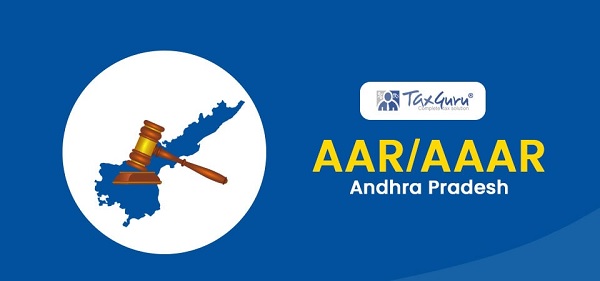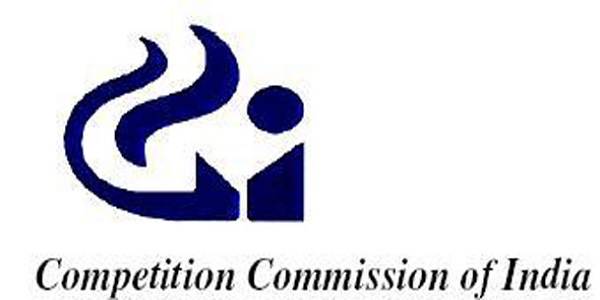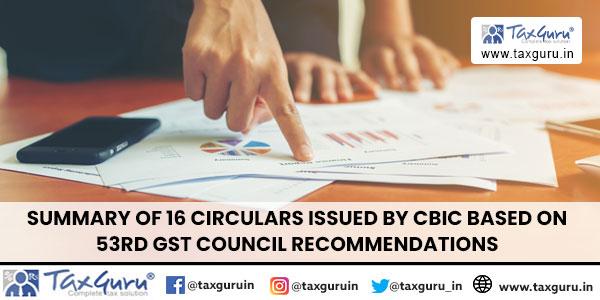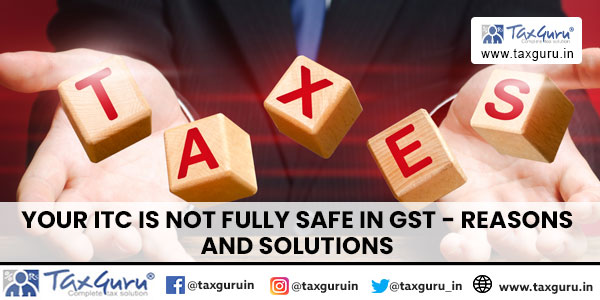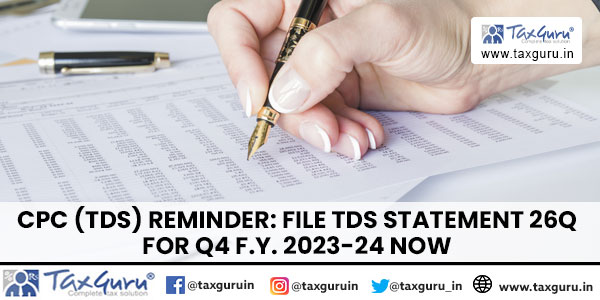Case Law Details
IN THE ITAT HYDERABAD BENCH ‘B’
Bhagyanagar Gas Ltd.
Versus
Assistant Commissioner of Income-tax
IT Appeal Nos. 588 & 589 (Hyd.) of 2012
[Assessment years 2007-08 & 2008-09]
September 14, 2012
ORDER
Smt. Asha Vijayaraghavan, Judicial Member
Both these appeals preferred by the assessee are directed against the respective orders of the CIT(A)-II, Hyderabad, for the assessment year 2007-08 and 2008-09. Since identical issues are involved in both these appeals, they were heard together and therefore a common order is passed for the sake of convenience.
ITA NO. 588/HYD/2012 FOR ASSESSMENT YEAR 2007-08
2. The substantial ground raised in this appeal is against the dis allowance of Rs. 1,30,67,866/- made by the AO under Section 40(a)(ia) of the Income tax Act.
3. Briefly the facts of the case are that the assessee company was promoted as Joint Venture Company (JVC) by HPCL and GAIL and the company is engaged in the business of distributing and marketing of CNG, Auto LPG, Natural Gas and any other gaseous fuel in the state of Andhra Pradesh. Bhagyanagar Gas Ltd. (JVC) was incorporated on 22nd August, 2003. It came into existence as a result of strategic business decision to have an entity with Geography Specific Focus to develop gas distribution network. GAIL & HPCL both agreed to contribute capital and certain other resources to functioning of the assessee company.
4. During the course of assessment proceedings, the Assessing Officer had noticed that the assessee paid GAIL and HPCL Rs. 1,30,67,866/- towards reimbursement of the cost of salaries of the employees with HPCL & GAIL who were on deputation to the assessee company and the assessee had not deducted tax from the payment made to the two concerns. The Assessing Officer held that the reimbursement of expenses debited to P&L account represented payment by the assessee to HPCL & GAIL for supply of labor to carry out the work of the assessee company. He noted that this is not a case where there is an employee and employer relationship to attract the provisions of section 192 for the purpose of TDS and this is purely a case where the manpower has been hired for HPCL & GAIL for the purpose of performing a specific job. The payments were not made individually to the persons of HPCL & GAIL but was made to HPCL & GAIL as reimbursement and therefore it is a clear case of payment made for supply of labor for carry out the work and as such fall within the ambit of provisions of section 194C of the IT Act. The Assessing Officer had disallowed the amount of Rs. 1,30,67,866/- u/s 40(a)(ia) for the failure of the assessee to deduct tax at source.
5. On appeal before CIT(A), the assessee submitted as under:-
“6. The assessee’s contention that tax is not required to be deducted from the amounts reimbursed by the appellant to HPCL and GAIL towards salaries of employees deputed by them, the appellant submits that the Assessing Officer ought to have appreciated that the provisions of section 40(a)(ia) apply only to the extent that interest, commission, brokerage etc., mentioned in section 40(a)(ia) remain payable and that the said provision has no application where the amounts of the nature specified in the said section have already been paid and consequently he ought not to have disallowed the amounts towards reimbursement to the extent they were already paid to HPCL and GAIL.”
6. After considering the submissions of the assessee, the CIT(A) disallowed the claim of the assessee on the ground that in the case under consideration it is not a question of reimbursement of salaries but issue is contractual payment made by the appellant to GAIL and HPCL. CIT(A) held that provision of management support to the Assessee, by GAIL and HPCL, the JV partners is part of the MOU and hence supply of the manpower should be considered as payment for services rendered by GAIL and HPCL under the contract and accordingly provisions of Section 40(a)(ia) apply to such contractual payments.
7. Aggrieved by the order of the CIT(A), the assessee is in appeal before us.
8. We have heard the arguments of both the parties and perused the record. The assessee is a Joint Venture Company promoted by GAIL & HPCL for distribution and marketing of CNG, Natural Gas, LPG, Auto LPG etc. They had entered into a MOU in connection with the promotion of the JV company viz., the Assessee herein. Under Article 4 of the agreement GAIL and HPCL will contribute management and technical skill in the respective areas of expertise, management support by way of secondment/deputation on request of JVC and enter into the gas purchasing agreement with HVC etc. In short the two companies have undertaken to provide all necessary assistance to the assessee-JV Company.
9. Under Article 14 GAIL and HPCL had agreed to bear the cost of incorporation as well as expenses relating to the business activity except man power cost, administration cost of the employees. However after incorporation of the JVC, all such expenses shall be reimbursed by JVC to the parties with interest. From the above, it can be seen that GAIL and HPCL had agreed to support the assessee in carrying on its business.
10. As part of this agreement GAIL and HPCL deputed their personnel to work for the JVC. Employees so deputed worked for the JVC. The JVC is liable to pay salaries to the deputed personnel. However for administrative convenience, GAIL and HPCL had paid the salaries to the deputed employees and the Assessee reimbursed the amount paid by GAIL and HPCL.
11. GAIL and HPCL deputed their personnel who worked under the control and management of JVC. The employees were carrying out the work of the Assessee as its employees not carrying out the work on behalf of GAIL or HPCL. Salary, cost of these employees are a charge on the profits of the Assessee. Payment by way of salary would not constitute Fees for technical services. Nor can the transaction be viewed as a works contract performed by GAIL and HPCL. Merely because the companies had in an agreement agreed to depute their employees would not mean that it is a works contract. Further the Assessee paid only the salaries of the persons who worked under the control and supervision of the Assessee. Instead of paying the amount to the employees directly, the Assessee reimbursed the amount to GAIL and HPCL who had paid the amount to the employees. This can be viewed as a financial arrangement under which GAIL and HPCL pay to the deputed employees on behalf of the Assessee and the Assessee reimburses the same. It is a reimbursement of amount spent by GAIL and HPCL in payment of persons in the employ of the Assessee and payment for any services rendered by GAIL and HPCL.
12. In our opinion such payment cannot be considered as payment towards work executed by GAIL and HPCL in the course of work contract. In the Case of United Hotels Ltd. v ITO [2005] 2 SOT 267 (Delhi) under similar circumstances, the ITAT, Delhi has held that reimbursement of salary to the deputed personnel would not attract deduction of tax at source. We find that these decisions are squarely cover the issue on appeal. In the following cases it has been held that reimbursement of expenses are not subject to tax deduction at source. The following decisions also support the case of the assessee:
(1) CIT v. Industrial Engineering Projects (P.) Ltd. [1993] 202 ITR 1014 (Delhi)
(2) CIT v. Siemens Aktiongesellschaft [2009] 310 ITR 320
(3) CIT v. Dunlop Rubber Co. Ltd. [1982] 10 Taxman 179 (Cal.)
13. Respectfully following the decision of the co-ordinate bench, we delete the addition made by the AO under Section 40(a)(ia).
14. In this view of the matter the alternate ground raised by the assessee, for applying the ratio of the decisions of the Special Bench of ITAT, Vizag in the case of Merilyn Shipping & Transports v. Addl. CIT [2012] 136 ITD 23, that the amount that has been actually paid by the Assessee to GAIL and HPCL before the previous year ended on 31.03.2007 should not be disallowed under Section 40(a)(ia) is considered academic and hence not decided upon.
ITA NO. 589/HYD/12 FOR AY 2008-09
15. Briefly the facts of the case are that the assessee company filed its return of income for the AY 2008-09 on 24/09/2008 admitting a loss of Rs. 2,61,046/-. During the course of regular assessment proceedings, the Assessing Officer noticed that the company debited an amount of Rs. 1,01,72,133/- towards the reimbursement of the cost of salaries of employees of HPCL and GAIL who are on deputation to the assessee company, the details of which are as under:-
|
(i) |
HPCL |
Rs. 56,39,153 |
|
(ii) |
GAIL |
Rs. 45,32,980 |
|
Rs. 1,01,72,133 |
The Assessing Officer, therefore, disallowed the said sum of Rs. 1,01,72,133/- being amount reimbursed by the assessee to GAIL and HPCL towards cost of salaries of their personnel sent on deputation to the assessee company.
16. On appeal, the CIT(A) held that the assessee is liable to deduct tax at source u/s 194C on the amounts reimbursed by the assessee to GAIL and HPCL of the Act, towards salaries of employees of GAIL and HPCL sent on deputation to the assessee company.
17. The assessee preferred appeal before us.
18. We have heard the arguments of the parties, perused the record and gone through the orders of the authorities below. We find that the issue is mutatis-mutandis with that of AY 2007-08. Following the conclusions drawn therein vide paras 12 to 14 (supra), we delete the addition made by the Assessing Officer and confirmed by the CIT(A) u/s 40a(ia) of the Act.
19. Ground Nos. 7 to 11 raised by the assessee are with respect to the dis allowance of Rs. 59,38,916/-.
20. Briefly the facts are that the assessee debited a sum of Rs. 59,38,916/- to profit and loss account, under the head “feasibility studies of earlier years, written off”. This amount represents payments made to GAIL and HPCL during financial years 2004-05 and 2005-06 towards reimbursement of cost of salary of certain employees. These employees were engaged in planning, procurement of fixed assets, liaison with Government authorities for various approvals and other activities pertaining to various projects proposed to be undertaken by the assessee in respect of its CNG business. Given that these projects were not operational during the earlier years, the expenditure was deferred and was charged to P&L account/capitalized as and when the projects were commenced. However, during the Financial year 2007-08, since the projects being undertaken by the assessee were not commenced and the expenditure of Rs. 59,38,916/- was not allocable to particular project, the same was charged off to P&L account. The assessee claimed the expenditure to be in the nature of revenue expenditure and hence the same is allowable under Sec.37 of the I.T Act. The assessee relied on the decision of the Delhi High Court in the case of CIT v. Diamond Products Ltd. [2009] 177 Taxman 331.
21. The A.O did not accept the claim of the assessee. He was of the view that the expenditure does not pertain to A.Y 2008-09. Besides, he was also of the view that the expenditure was capital in nature. He was of the view that the nature of expenditure does not change on the basis of the project becoming operational or non-operational. He further stated that in the case of the assessee, the projects i.e., setting up of new CNG units could not be put under operation. Accordingly, he concluded that the expenditure of Rs. 59,38,916/- written off by the assessee is capital in nature. He disallowed the assessee’s claim of expenditure.
22. The assessee made an alternate plea that if the expenditure were to be treated as capital in nature, the same is eligible for amortization under Sec.35D of the IT Act on the ground that the impugned amount is eligible for being treated as expenditure towards feasibility study and 1/5th thereof is eligible for amortization. The assessee pleaded that since the CNG business of the assessee commenced commercial operations in the month of August, 2005 (F.Y 2005-06) 1/5th of the expenditure is allowable in Asst. Year 2008-09 being the third year.
23. The A.O turned down this alternative plea also stating that the expenditure is not covered under Sec.35D. In his order, he did not state the basis for such a view.
24. While disallowing the expenditure of Rs.59,38,916/-, the A.O assigned a further reason viz., that even if the expenditure were revenue in nature, it is liable for dis allowance u/s.40(a)(ia) of the I.T Act because the assessee did not deduct tax at source from these payments.
25. Before the C.I.T(A), the assessee submitted that on the facts of the case and the law relied upon by the assessee, the expenditure incurred on salaries of employees ought to have been allowed by the Assessing Officer. The assessee also relied on the decision of the Gauhati High Court in the case of Dy. CIT v. Assam Asbestos Ltd. [2003] 263 ITR 357.
26. The assessee submitted that all the contentions put forward in this appeal in respect of the disallowance of Rs. 1,01,72,133/- in ground Nos. 1 to 6 apply squarely to the expenditure of Rs. 59,38,916/- also. Accordingly, the assessee pleaded that the disallowance is not liable to be upheld.
27. The CIT (Appeals) dismissed the assessee’s appeal and upheld the dis allowance of Rs. 59,38,916/-. She held that the expenditure does not pertain to the Asst. Year 2008- 09 and also that it is capital in nature. She did not allow the alternate claim for allowance of 1/5th of the expenditure u/s.35D. She further held that the assessee is not entitled to deduction of the impugned amount since Sec.40(a)(ia) applies and the assessee has not substantiated its claim for exclusion of provisions of Sec.40(a)(ia). The CI.T(Appeals) also declined to direct that the expenditure should be allowed to be capitalized and form part of capitalized assets.
28. The assessee is in appeal before us and reiterated the submissions made before the revenue authorities.
29. The assessee contended that the CIT(A) ought to have allowed the claim which is supported by the decision in the case of Assam Asbestos Ltd. (supra) and Diamond Products Ltd.‘s case (supra).
30. We have heard the rival submissions and perused the record as well as gone through the orders of the authorities below. We are of the opinion that all the expenditure specified in Sec.35D(2) incurred before commencement of business is eligible for amortization under Sec.35D(1)(i). Relying on the decision of the Hon’ble ITAT in the case of LIC Housing Finance Ltd. v. Dy. CIT [2007] 105 ITD 86/11 SOT 653 (Mum.), we direct the Assessing Officer to consider said expenditure u/s.35D.
31. Further, the nature of expenditure being salaries of deputed employees, liability to deduct tax does not arise for the same reasons advanced by the assessee in connection with the dis allowance of current salaries, which we have decided in para Nos. 12 to 14 of ITA No. 588/Hyd/12 (supra), therefore, the addition made by the Assessing Officer u/s 40a(ia) is deleted.
32. In the result the appeal of the Assessee are allowed.





